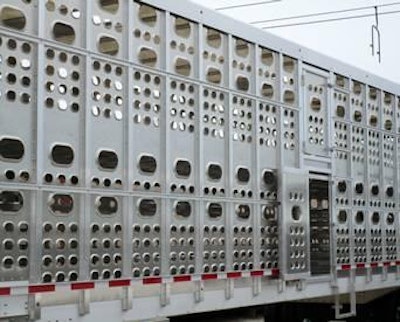“While we don’t really know how [the porcine epidemic diarrhea (PED) virus] got here, we do have a pretty good idea how it’s moving around — contaminated livestock trailers,” said Dr. Paul Thomas, AMVC, at the 2015 World Pork Expo.
A number of temperature and time combinations are effective at inactivating coronaviruses, including the PED virus, explained Thomas. Disinfectants commonly used in swine production, and the concentrations they are used at, are also effective. However, the effectiveness of both of these can be reduced by factors common to livestock trailers: the presence of feces and reduced temperatures.
Dr. Thomas offered these tips to prevent a PED virus outbreak:
- All livestock trailers must be washed, disinfected and baked between loads of animals.
- In the presence of feces, the PED virus must be heated to 160F to inactivate the virus.
- You should assume there are still feces in a cleaned trailer.
- When a trailer arrives at your farm, inspect it to ensure it is being properly cleaned.
- Empower employees to turn away improperly-cleaned trailers.
“You have to do everything 100 percent." said Thomas. "Excellent internal biosecurity is critical to shut down outbreaks and keep the PED virus from coming back."
These recommendations are consistent with today’s best practices for trailer decontamination and can be immediately implemented by transporters and pork producers.


















